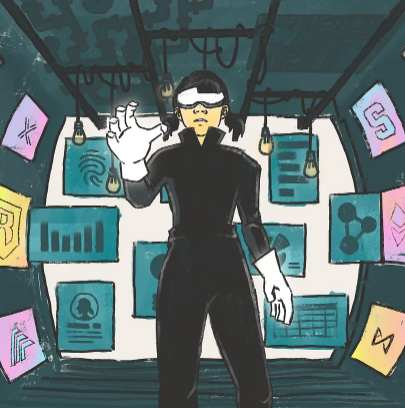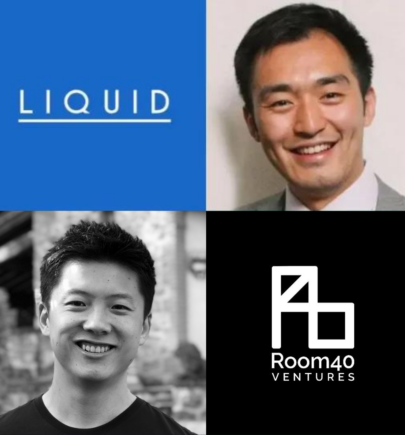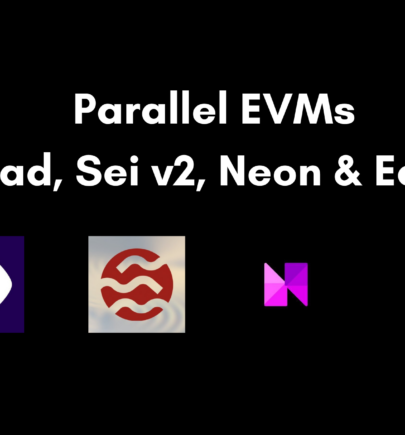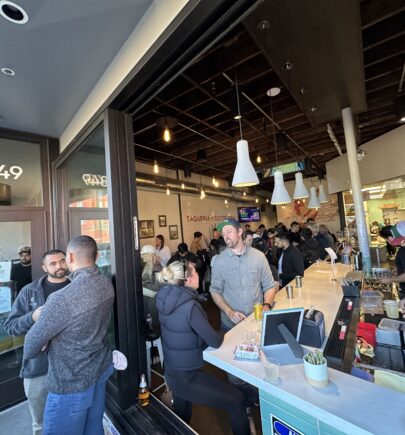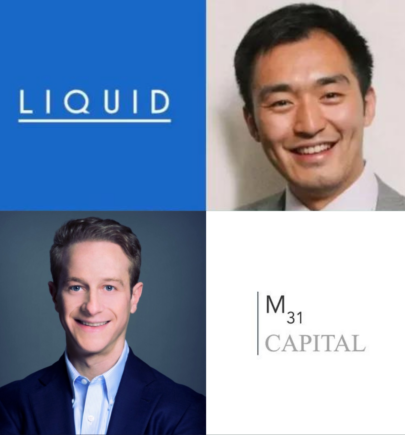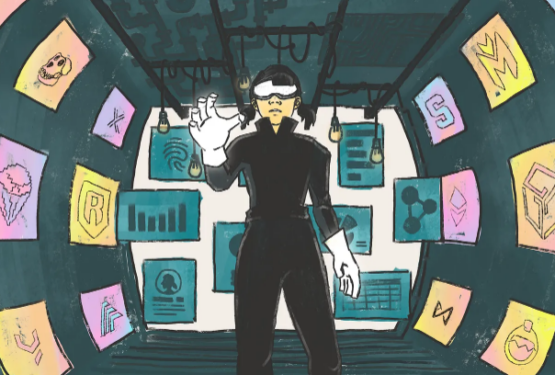Interview with DDEX Co-Founder Bowen Wang
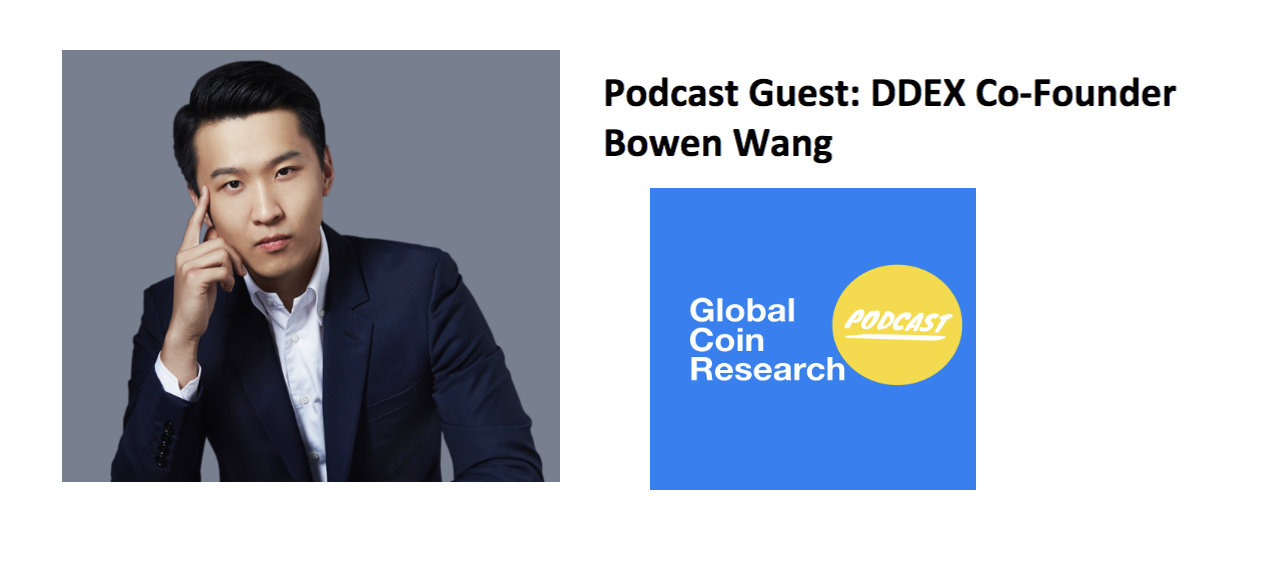
Checkout our Latest Podcast with DDEX Co-founder Bowen Wang
We are delighted to bring you our latest podcast with Bowen Wang, founder and COO of DDEX, a decentralized exchange based out of Beijing.
DDEX now accounts for about 75% of the total volume of trades over the 0x Protocol each month and ranks 13% of trades amongst decentralized exchanges, 2nd after IDEX. In this episode, Bowen and I discuss how DDEX operates out of Beijing, how DDEX discovered 0x, Bowen‘s advice on approaching Chinese regulators for blockchain projects, and insights on hiring developers and community members out of China.
New DDEX Wallet: Bringing Decentralized Trading To Mobile
Basic DDEX trading: DDEX Trading — Getting Started
Time Stamps and Topics discussed in Our Interview
1:18- Introduction to Bowen and background on DDEX
2:50- Bowen’s overview of the regulator’s attitude and the environment in China right now
5:20- How do the regulations in China affect the DEXes in China?
6:20- Bowen says that the blockchain market is surprisingly growing
9:10- How does Bowen recommend conversing with the regulators in China?
10:55- How did Bowen decide to build on 0x when 0x was just starting out in the US?
11:50- Bowen’s advice to companies going to market in China
17:10- On hiring the right type of people for your remote teams in Asia, and the services that Bowen recommends
24:43- There are more than 50 teams working on creating their own Blockchain and trying to take on Ethereum
26:00- Bowen’s outlook on the east and west
Listen to it on iTunes or here on Soundcloud:
Joyce Yang
I’m your host Joyce Yang and our guest today is Bowen Wang, co-founder and CEO of DDEX, a decentralized exchange based out of Beijing. DDEX now accounts for about 75% of the total volume of trades over the 0x protocol each month. In this episode, we discuss how DDEX operates out of Beijing, how DDEX discovered 0x, Bowens advice on approaching Chinese regulators for Blockchain projects and insights on hiring developers and community members out of China.
Bowen Wang
Hello, this is Bowen Wang from DDEX. I’m the co-founder and CEO of DDEX. I graduated from NYU 2 years ago and before starting the company, I used to work at Zhenfund, which is Sequoia’s early venture firm investing in early stage companies. And back while I was in Zhenfund, I was specifically looking into the Blockchain company and also Blockchain related app company. So I was the first one who actually invested in ImToken and also Lino and also many of the other projects in the Blockchain space. And then we started a friends and family fund by ourselves, and then we discovered that few people hold their tokens long term. They have to have a marketplace to buy and sell. And so over the course of a weekend, we had 3 co-founders come together just trying to build a decentralized exchange in Starbucks. And then we figured out that it’s actually something that’s workable and then we quit our job and put our full hands on it. So then we got the investment from Initialized Capital and also Zhenfund for seed round funding, and we launched it in January 2018. And since then we have been up and running for more than 10 months already and also we have like have aggregating volumes for more than 400 million dollars.
Joyce Yang
Wow! That’s great. And just to give our listeners a quick understanding, you’re based in China right now with your team. And how big is your team?
Bowen Wang
So right now we’re based in Beijing. And the Beijing team has more than 25 members.
Joyce Yang
Wow! That’s quite big. And you grew that from 3 people since raising funding last year essentially.
Bowen Wang
Yeah, since 12 months ago. Even before like 6 months ago we only had like 8 people.
Joyce Yang
Yeah, that’s great. Just at a high level, how’s the crypto market in China right now? You kind of see a lot of what’s going on the East as well as in the West, and you are based in Beijing where you know a lot of the government officials and regulations are actually made. If you could give an idea what’s going on and the crypto regulations product, also the Blockchain development front.
Bowen Wang
Let’s talk about like the government policy. For now, the one top priority for the government is to stop the Fiat entrance for crypto market, which means that you cannot buy Bitcoin or Ethereum from any kind of central exchange just like people in the U.S. use Coinbase. And the reason why is that they want to stop like capital outflow or money laundering activities from a macro perspective, but from a development perspective, there have been really a growing number of developers coming to Ethereum and learning about solidity and there’s many. So like on Coin market cap of the top 100 Tokens, like 30 percent of them are coming from China. So there’s many other new layer-one blockchain teams that are trying to kind of revolutionized EOS or ETH from different architecture like DAG or DPOS. And there are also different like layer 2 protocol, which actually wants to do a scalability solution on Ethereum. And also there are many of the D-Apps coming up like Cryptokitties is in China and also like the U.S. developer community are really huge in Asia and people are developing U.S. wallet US D-App, US gambling game. And also kind of 30 percent of the U.S. Block producers are located in China. And as you all know, Bitmain is in Beijing, most of the majority of the mining pools are located in China and also there’s a huge line of like a manufacturing mining in the middle of nowhere like southeast China and Northeast China in the markets.
Joyce Yang
So you’re saying that the Blockchain community is very strong from what you’re seeing in China.
Bowen Wang
I always say it’s substantial, and also Bitmain is looking into IPO in Hong Kong markets either by the end of this year or at the beginning of next year. So we’re going to see the first Blockchain related company to go public in the capital markets.
Joyce Yang
It seems like the regulators are controlling mostly the capital outflow issue but on the technology front, it’s quite supportive and they are going to stop trading. And how does that affect DDEX?
Bowen Wang
Yeah, so basically, DDEX is that decentralized exchange, it doesn’t take any custody of any user’s fund, which is not categorized as a money transmitter or like a balance holder. And also we only focus on crypto to crypto market which is traded and recorded by the smart contract. So we don’t really enter the space of a fiat and exchange landscape. So for that aspect, there’s no really strict regulation on that. And also like from a government standpoint, the Blockchain technology itself is actually promising, but the only problem with the token is that it did an initial coin offering and also there are many scam projects like in the last year actually just raising funds from the innocent people who actually have no real deep knowledge about investment and risk management.
Joyce Yang
That’s definitely a problem. So do you think right now, given the market kind of slowing down, are the developments in China still happening and happening pretty consistently as before?
Bowen Wang
Yeah, I will say it’s growing. It actually takes months or years for developments. Before that, there are not many Solidity programmers, people able to write small contracts. And then there’s just different projects trying to host Meetups just teaching about their own Blockchain technology, how to write smart contracts or write D-Apps on their Blockchain. And then there are many of the regular workshops on a weekly basis in Beijing or in Hangzhou, and there’s more than like 50 people joining them every single week. So I would say like the community of developers are growing and also they have like competition for this kind of like hackathons, in Beijing like from Dorahacks. So I just see like more energy coming into the developer side of the Blockchain industry.
Joyce Yang
That’s really helpful. And so if you could just guess it or on the number of developers that are building on top of solidity and working on Blockchain, would you say that it’s gone up from hundreds to thousands of people?
Bowen Wang
Yeah, definitely. For us like before that in 3-month projects, we only had like 2 people writing solidity. And right now like in our team, there’s more than ten people who actually can write solidity.
Joyce Yang
Oh wow! Yeah, I would love to ask you more about the hiring and how you find these individuals in China as well since a lot of our projects in the US are interested in learning about that, but I want to just quickly go back on a high level first around how you guys interact and talk to the government, because it’s obviously an important thing to do. And even though you’re not necessarily being bound by the government officials, but I want to see. And how do you talk to the government and how does that work in general in China?
Bowen Wang
I would say just being consistent and being transparent. So many of them, especially for the layer 1 Blockchain companies, they actually need support, for either mining firm or like mining pools like even mining joints. So basically just explain how the technology works and how it actually works out in a better way for the general public’s productivity. And just kind of stay away from restricted areas, which is the Fiat entrance and just focusing on development and also always thinking like create your community, host Meetup. Everything we do at the Eth San Francisco is totally allowed here in Beijing, and most likely if it’s not going to be…. Normally like the way to communicate with the government is finding the specific agency who actually holds the jurisdiction on that technology and basically just kind of go through which area you shouldn’t go into and which area you should, just register before you’re going into.
Joyce Yang
So for DDEX, you found a specific agency that was responsible for overall exchanges; it’s that the idea? And you essentially have a dialogue or meeting on this is what we’re doing, and is there any issues that we’re not doing?
Bowen Wang
Yeah, it’s basically like the financial Bureau of Beijing, we just have to meet the authorities and say this is what we are doing and then it basically just doing our registration here.
Joyce Yang
And are foreign projects able to do the same thing? What’s the kind of attitude of these general agencies?
Bowen Wang
I will say they’re neutral, they’re open talking, but I wouldn’t say they’re encouraging most of the foreign project coming into China, because they are a local agency instead of like the national one, but I would say it’s worth a shot to try, and it doesn’t cost that much to try to talk.
Joyce Yang
Yeah, that’s very helpful. I mean I think a lot of projects go to, kind of land in Beijing or Shanghai and then they try to figure out what to do but they obviously don’t want to make any trouble in this space, so that’s something good to know. You’re a very interesting project because you guys are Chinese based project but you’re building on 0x which is a primarily U.S. project. How did you find 0x and decide to build on 0x?
Bowen Wang
We are early investors in the 0x protocol actually, and I wrote the very first analysis in Chinese about the 0x protocol. It’s basically like back then we’re running a crypto fund and then we just want to try out to see like which is exchange products actually works. And then 0x was the only one, actually working and up and running on the Ethereum mainnet. It was the only choice, and so we just went with it.
Bowen Wang
Was it easy to build on top of this coming from…. I mean, code is obviously universal, but was there any trouble when you needed help? How was the dialogue and you find it difficult when you’re building in mainland China and then kind of talking to the team if you are doing that with 0x in San Francisco?
Bowen Wang
Yeah, so we basically didn’t need a little help from the direct team because our CTO is a really great, like full stack developer and he basically wrote the front end and back end by himself, the very first version. And we didn’t go to know the 0x team really well after we launched. Basically, we’re just developing our side and didn’t talk to them that much. So they know like we’re working on a project on 0x but we didn’t really need to reach out to them to ask for help.
Joyce Yang
And did you have a direct community in China when you were building?
Bowen Wang
Not really. Basically, the 0x team doesn’t focus a lot on marketing or PR in general Asian market. So back then, people don’t really know what 0x is in China.
Joyce Yang
Relating to that, any advice that you have for companies that are looking to go to China or Asia and have projects be built on top of their protocol. Would you have any advice on that specifically? And kind of what have you seen that’s successful and not successful if you’ve encountered any?
Bowen Wang
Yeah, basically for foreign projects, U.S. project that want to break into the Chinese market, they will ask “Hey, Bowen, do you have any candidates for our general China manager or community manager?” So basically hire local people who actually can communicate well with the core developer team is really crucial. One of the really good management team that has been doing localization in China is MakerDao. So Maker started out really early, I think it’s the beginning of 2017, they hire a local general manager in China; they actually hired 2. And they’re doing roadshows on a weekly basis, the hold workshop and to teach how to do Dai and collateralize their smart contracts. And they also have people lobby different exchanges to list their stable coins as well. I always say like first thing first; hire a local person who actually are so enthusiastic about Blockchain, and know about the project and is able to speak English very fluently and communicate well; it’s definitely first step. And then just trying to set the budget and say okay, our objective is here for the general manager you know they’re looking for listening or either they’re looking to grow the community organically.
Joyce Yang
Yes, that’s a very good first step; to hire someone local to kind of lead the project there. It feels like sometimes when I talk to projects, they just want to go to market there but they don’t really have a goal or a KPI.
Bowen Wang
It’s very hard to set a goal, but especially like in Asia, there’s different community like the Japanese community, Korean community, Chinese community; there are all different.
Joyce Yang
What would you advise them to do when they first go to Asia? Is it to go to China first specifically or is it to have a diversified kind of strategy towards Asia?
Bowen Wang
I would say it depends. If it’s a publishing layer 1 blockchain that actually wants to bring more audience of either miner or developer, they should go for all the targets, but if you are like a gaming and gaming d-app for like stablecoins, then they should go after the specific population first.
Joyce Yang
The specific population of the gamers you mean?
Bowen Wang
Yes, exactly; the potential users.
Joyce Yang
Okay. And then for the target countries, can you just lay them out for the listeners?
Bowen Wang
So like top 3 crypto exchanges are in China, so like China is definitely the number one that kind of like to reach out for the audience, and Korea itself has like Upbit and Bithumb, which has alot of token holders in terms of pure populations; so Korea should be the second. And since Japan is like legally, you can buy Bitcoin and Ethereum in Japanese Yen, it might be the third one to go after.
Joyce Yang
And then is there anything that you’ve seen projects doing that may have…. that you would caution against? Perhaps things that are they do in the US that are not culturally…. or just does not fit the Chinese culture or the strategy in the market there?
Bowen Wang
I guess its different social media channels, like people in US more get used to podcast, Twitter or Reddit, in these kinds of discussion, but it’s very hard and the contents out in this kind of like similar social media channel in China. So most of the people use WeChat here, like WeChat channel is one of the most important things that people read it on everything basis. So finding the right channel, instead of just translating everything on Twitter or reddit, is much helpful than just copying everything from English to Chinese or English to Korean.
Joyce Yang
Yes, that’s definitely one of the very basic things, is finding a translator to actually transform your content into the tone and the style in Chinese or any other Asian language, and then communicate it through their types of channels so that you actually have very effective types of marketing when you’re doing is media content. So do you think these marketing and roadshows work really well in the Chinese community? Say for example you know Hackathons is kind of a new concept I’d say in the last maybe 5-10 years or also kind of workshops right. These are generally I feel like very new developer types of events. Is that accurate?
Bowen Wang
It is actually. So before, there are only like a couple hackathons in 2016 in the entire China, but recently there’s more of the monthly hackathons, and also like bi-weekly or short coming up.
Joyce Yang
Yeah, it seems like they’re taking it from a very Western type of playbook of kind of building these communities. Which ways have you seen to work the most effectively if you’ve seen any?
Bowen Wang
I was doing like a small group workshop, attract real believer, people who actually genuinely like interested in your project, instead of like this kind of huge conference airdrop for participation and also kind of like token incentivize model. So slowly growing authentic participants are more crucial, I would think.
Joyce Yang
Yeah, that’s very helpful. And then I think we’re arriving at a time where we kind of talking and dancing around this topic, which is hiring, obviously hiring is super important and obviously, for a Western project going into this space into the region, they have to hire very well and hire the right types of people. You mentioned before that they have to know how to speak English well and then they have to understand the markets and have an interest in crypto. What are the general ways in which you go about hiring currently for your company? How do you find these people and the traits that you look for?
Bowen Wang
Yeah, I guess it actually just goes back like how to hire the start-up. So most of the people on the team like either old colleagues of us, or like old friends of us and also friends to referral. Like hiring is a traditional business. And hiring, it doesn’t have any kind of like no way to hire in the Blockchain space, so you’re presented with employees that are coming from like old colleagues or friends and rest of the 30 are coming from Angelist or basically these people sending resume to an email when they’re interested in your projects. And our designers are remotely in Miami and he is just really interesting our projects, and they just send us a resume. So basically, it’s just kind of an old traditional way like people help you hire. And the trait we looking for, it’s basically just like a good developer, they have a full stack of engineering experience, what types of projects they have been working on, and how their co-worker kind of like reviewing them.
Joyce Yang
And these are from typically traditional companies, the large tech companies, just equivalently to the US, Google and Facebook, and you’re hiring from Alibaba and Tencent.
Bowen Wang
It is pretty similar actually, we have a team member from Google, from Baidu, from Alibaba. And so we basically just look into their previous experience, working experience and what project they have been working on.
Joyce Yang
Yeah, this is helpful. And do you use any recruiting services in Beijing, that’s useful to share; well, for the readers, or is that they have to just kind of need to really have to build a community and higher from the ground up.
Bowen Wang
There’s kind of like LinkedIn, so kind of services in China is called Lagou or BOSS Zhiping . So there’s different hiring channel, and also we can hire like headhunters to look for the specific skill set of people. So we use headhunters as well when we were hiring for Android developers, because we really need someone to help us to put the Android version of the DDEX online. So that’s basically it.
Joyce Yang
Is it harder to hire an engineer than a community member? Remember I assume that is the case.
Bowen Wang
Yeah, that’s the case actually. You have to go to like a hundreds of resumes, like 20, first round interview and maybe 10 second round technique interviews.
Joyce Yang
You said 10 technical rounds?
Bowen Wang
It’s just like a number, so you like a hundred resumes and 20 of them will go through that first round.
Joyce Yang
Do you mind sharing what the salaries are like on average for these developers or is the range very wide? Because I think there’s a huge labor arbitrage between China and the US in specifically crypto development. And I wonder if that’s OK, if need someone who actually knows the space to verify the thing.
Bowen Wang
There’s actually…. So like in Silicon Valley, there’s many huge firms competing for the top talents. Let’s say Coinbase or Facebook, Google, they pay like people like 300k per year with bonus and salary to start with. But in China it will be much less, I would say there’s at least like half worth of pay for the same health talent, because the cost of living here is comparatively low. And also the cost of living is actually more than 50 percent lower than living in Silicon Valley or New York City, that which is proportionally reflected to the salary paid as well.
Joyce Yang
Okay. So that is true it sounds like projects in the U.S. should hire in China.
Bowen Wang
And also like the taxes level. The salary taxes is comparatively lower than in the U.S.
Joyce Yang
How much lower? Do you know?
Bowen Wang
I guess at least like 10-15 percent lower.
Joyce Yang
Okay, taxes are higher in the U.S. in general.
Bowen Wang
It is for sure.
Joyce Yang
For community members, what kind of types of people do you look for? Like a marketing or previous business development people of these large tech companies? Is that the right way of looking at it?
Bowen Wang
Two of the community managers working for us here used to work at dedia. So like they used to work in Tech media, so they know how to reach large amount of audience and they know how to write good articles to attract organic fans. So I personally prefer like people that have a media background and actually have a really strong writing experience. And also, they have a connection with the Tech media itself and also vertical medias.
Joyce Yang
Yes, that’s actually I think very important, more so in China than the U.S. from the community members that I’ve seen in terms of the roles. Typically in the US, these community members come more from marketing. And like they don’t necessarily have the media connection, but media is actually quite powerful in China and useful given that the country is so big and everyone kind of ingests the same types of information from a few resources. So having those connections is very powerful versus you know, in the U.S. it could be something coming from a marketing person who ends up becoming a community member, who kind of primarily addresses the community.
So lastly, I think I want to ask you about what you think kind of the Blockchain developments in China will evolve to, from what you’re seeing from exchange point of view. Decentralize exchange is obviously a very interesting and also a trend that a lot of exchanges are going towards. How do you see that evolve? If there’s a difference in which the regions could involve, which I don’t think there is, but would love to hear your thoughts.
Bowen Wang
I think like in the East, like at least in China, like Exchange business has been running really well. It’s kind of like running a restaurant. They’re like different kind of like dishes you can choose and they have a really good customer service, and they normally can respond to any kind of tickets in under 5 minutes. So like in China, there’s more of the business or trans-retail kind of Blockchain project has been working really well. Recently, the consumer end, but like institutional side like OTC desk, and also Cumberland, like Circle, these guys are like huge trading desk, you cannot find any kind of like similar ones in China because there is none existing. So I would say there’s many like compliance-oriented business service can be coming around really well in the US, and the retail focus will be tailored much better in the East end. And in terms of development side, basically….
And also in terms of tech development basically, most of people here in China want to build your own Blockchain, which they are more ambitious and more…. They want to start everything from Ground Zero. But in the U.S. most people, if you talk to it developer or like 3 developer team or 10 people developer teams, they all say they were developing on essentially, no brainer. So like in East people are trying to build their brand new Blockchain; in the West, most of the people are not reinventing the wheel. So I would say that would be the trend continuing forward. So there you will see more of the public chain and competitors in the east, and not as much as like US orEthereum competitors in the US.
Joyce Yang
That’s interesting. So how many projects can you counter your figures of people building their own public chains that want to take on Ethereum? Those are the kind of core developer community in China I assume, but it sounds like these people are very hungry and they want to kind of take over a lot of the Ethereum, achieved Ethereum level type of impact and influence.
Bowen Wang
I would say there’s at least like more than 50 teams working on creating their own Blockchain, and so let’s say this normal average styles of the team would be 30 people, so there’s going to be a 1500 people working on new blockchains.
Joyce Yang
And do you think they’ll be able to raise funding? That sounds like really big groups or have they already raised funding?
Bowen Wang
I think like one example is a notorious Tron, so TRON has more than like 200 developers on his team including BitTorrent, and they’re trying to build a faster and cheaper Ethereum. So many of them have done the fundraising beforehand, which is before this year January or like last year October, November. And so many of the projects have already got the funding secured, and they’re just trying to deliver.
Joyce Yang
Do you think these projects are trying to take on Ethereum or are they trying to build an entirely different kind of business model on Blockchain? I wonder, maybe a question for you is do you think is the future of Blockchain going to be very global?
Bowen Wang
So is that going to be like a Google Baidu, or Tencent, Facebook kind of thing right? I would say yes actually, let’s go back to the internet age. So it’s like Google was operating really well in China but the censorship has come out with the policy, so that they had to leave the country. So if the government sees one technology that brings substantial revenue and also taxation to the government, sometimes they would just support a local one instead of the global one. But I would say like Bitcoin and Ethereum are different. And they have the first mover advantage. I don’t really see like the new competitor coming up actually can take on these existing coins even though they say something like 10 times TPS. For example, look at what happened to Litecoin, Bitcoin, even though Litecoin is 10 times faster than Bitcoin, but people are still like evaluate Bitcoin much valuable than Litecoin because of the first mover advantage.
So I would say there’s many and there’s going to be many competitors to Ethereum, and we have seen already like I say Tron in China or like EOS in China, or NEO and QTUM, but they’re not getting close to what kind of the developer community that Ethereum has or kind of like how many wallets are created on their Blockchain on a daily basis. And I guess there will be like regional competitors to Ethereum, but they are just going to be a relatively small one. Instead of like the one that gets larger and take over Ethereum.
Joyce Yang
What you’re saying is that there’s probably not many projects that could really build the same community that Ethereum has built even in China given that we have so many people in China. I don’t know Tron well but I’m curious; is Tron very popular in China?
Bowen Wang
Well, in terms of influence level, they are pretty popular because Justin at Tron is really good at making the headline, but in terms like attracting genuine developers, they’re not so good at like creating like Ethereum developer kind of community.
Joyce Yang
Is there anything else I missed about that you think it’s interesting? So we saw each other at Scalar summit most recently a few weeks ago, and I wonder if you’ve seen any projects or seeing any general observation from you know SF Blockchain week that was about what’s going on in the US that’s different from China?
Bowen Wang
Well I guess like as you said, a really complex onchain financial instruments are really something interesting to see. So I was dy/dx and Compound, while I was in San Francisco and I’m really glad to see like some idea actually just up and running on Ethereum already. So dy/dx is basically a derivative; onchain derivative that can interact with different smart contracts, and Compound is the same, it’s the market borrowing and lending smart contracts. So I’m kind of pretty optimistic about like the Onchain smart contract; either as liquidity provider or financial instrument. And when people are using them together, it will have a compound effect in the long run. It’s just basically the first time we see like people see gold option like or gold future on Wall Street.
Joyce Yang
Yeah, and it sounds like these kind of financial products are not quite there in Asia. And you know, I think the financial markets is quite early in Asia.
Bowen Wang
Yeah, people are only like 3X, 30 times leverage at OKEX and Bitmex. So there isn’t really a market for any kind of derivative or instruments in Asia.
Joyce Yang
Thanks so much Bowen. To learn more about the topics discussed today, check out the descriptions under the podcast episode. Also be sure to follow us on Twitter at [Globalcoinrsrch]. New episodes come out once every 2 weeks. So if you haven’t already done so, rate, review and subscribe on Apple podcasts. If you like this episode, share with your friends on Facebook Twitter or LinkedIn.
Thanks for listening.
